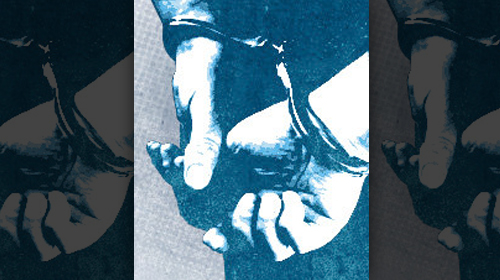
As Mark Twain famously wrote, “There are three kinds of lies: lies, damned lies and statistics.” A recent letter sent out by Corrections Corporation of America (CCA) to 48 governors offering to buy state prisons included a little of each.
Much of CCA’s letter was devoted to touting its recent purchase of Lake Erie Correctional Institution in Conneaut, Ohio. In 2012, the Lake Erie facility became the first publicly owned prison in the nation sold to a private prison company. While this is certainly a dubious distinction, CCA took some liberties with the facts.
Most notably was CCA’s assertion that it would save states money, which has been refuted repeatedly. While CCA claims it will save Ohioans $3 million per year, a recent report analyzing the state’s contract shows that taxpayers will actually lose money over the next 20 years. Of course, this is not earth-shattering news, as other fiscal analyses in Ohio and Arizona have produced similar results.
While it’s true Ohio received $72.7 million for the Lake Erie facility, CCA did not mention that the state chose not to sell four other facilities because it would not be a good deal for taxpayers. In fact, Ohio saved more money this year by removing private operators from North Coast Correctional Treatment Facility — a facility in north central Ohio that had been privately managed for over a decade — and putting it back under state control. The state’s string of bad luck selling prisons continued yesterday, when officials announced the results of a bidding process for a recently closed juvenile facility that was put on the auction block. The top bid for the $11 million facility was a paltry $284,000, leaving its future in question.
CCA also points out that 93 percent of the previous staff from the Lake Erie facility was retained in the ownership transfer — the implication being that governors shouldn’t worry about privatization because most state corrections officers will be hired back. What it does not explain is that Lake Erie has been a privately operated facility for over a decade. That means none of the employees who were retained were state employees.
Certainly, if the facility had employed state corrections officers, many of those workers could not afford to continue working there. It’s no secret that private prisons pay employees far less than state workers and provide few benefits, leaving doubt that privatization of a state facility would be as “seamless” as CCA describes in its letter.
Speaking of which, CCA also leads readers to believe there was no drama behind the transition to private ownership, but the people of Conneaut may disagree. As CCA took the reins of the Lake Erie facility, Conneaut city officials were informed that it would be the duty of local police officers to investigate crimes at the private prison. Typically, the Ohio State Highway Patrol (OSHP) handles all investigations at state prisons, but private properties are under the jurisdiction of local police forces. This could cost the city of Conneaut taxpayer dollars it just doesn’t have.
State Attorney General Mike DeWine got involved, issuing a letter that said the OSHP would continue to investigate crimes at the facility. However, Attorney General DeWine’s letter is not legally binding, and lawmakers are currently considering legislation that would mandate the OSHP maintain investigatory power.
Not exactly smooth sailing.
Ohio’s unfortunate experiment with selling off state prisons is already off to a bad start. Governors should take heed and think twice before entering into costly arrangements that only benefit the private companies and hurt the taxpayer.
Learn more about private prisons: Sign up for breaking news alerts, follow us on Twitter, and like us on Facebook.



